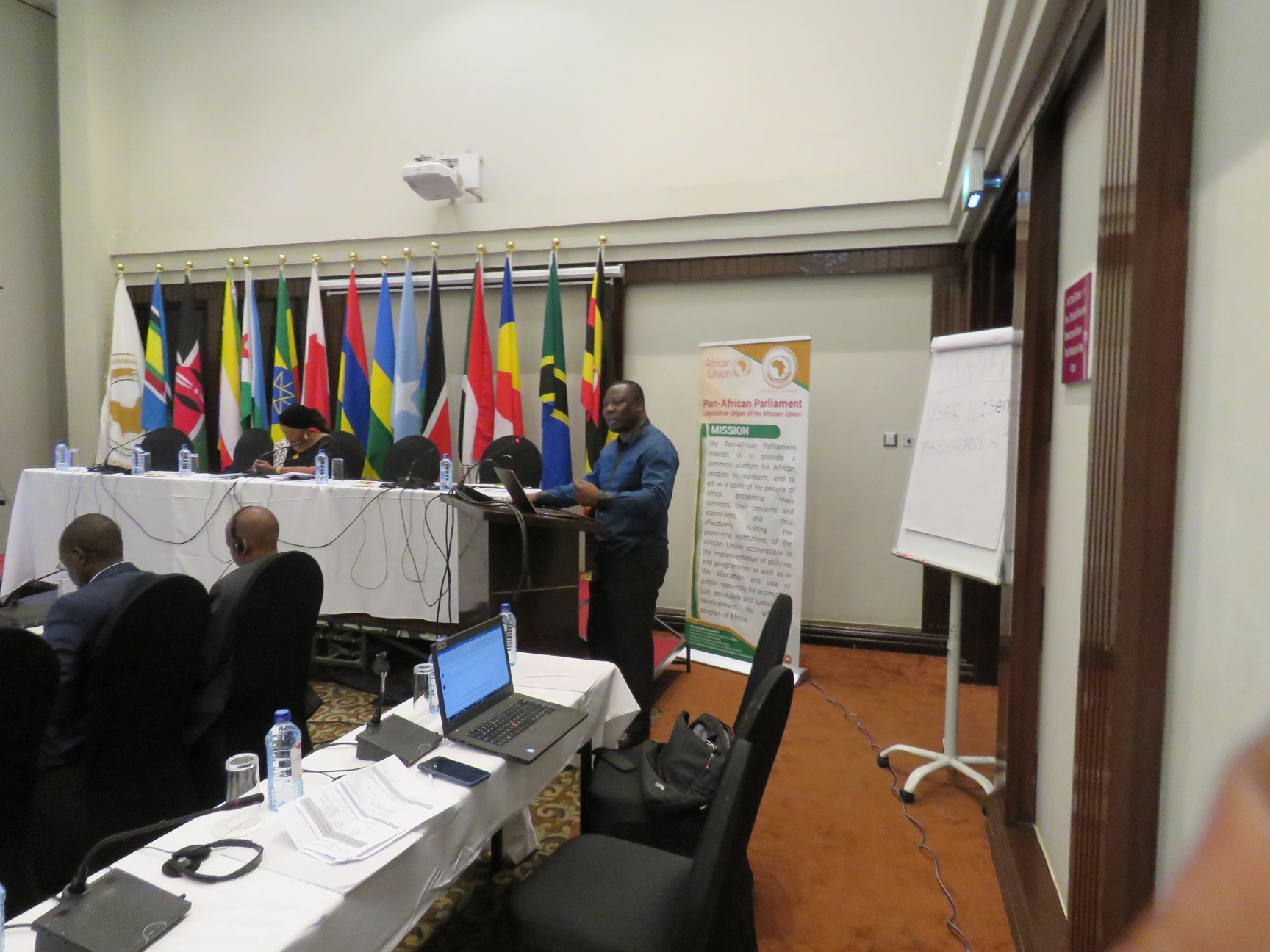The Pan-African Parliament (PAP) East African Regional Caucus has been urged to heed the call and ratify the Malabo Protocol during the opening ceremony of the consultation meeting currently underway in Nairobi, Kenya.
The meeting is being held under the theme: “Building regional consensus on AU legal instruments and promoting the ratification of the protocol to the constitutive act of the Pan-African parliament: Engaging civil society organizations in the promotion of AU legal instruments” and will run until 21 November 2019.
The East African Region of the PAP is comprised of 13 countries which include Comoros, Djibouti, Kenya, Ethiopia, Rwanda, Somali, Madagascar, Mauritius, Seychelles, South Sudan, Sudan, Tanzania and Uganda. Somalia and Madagascar are the only two countries that have signed, ratified and Deposited the instrument. Comoros and Djibouti have only signed but are yet to complete the process.
Hon. Chief Fortune CHARUMBIRA, 4th Vice-President of the PAP, said in his opening address that Rt. Hon. Roger Nkodo DANG and the entire Bureau expect a lot from the conclusions of this meeting and hope the region will see it fit to empower the PAP especially at this crucial stage of the African integration journey.
“It is common knowledge that the Sun rises in the east. Therefore I expect that you will bring light to the issue of the ratification of the PAP Protocol as this is long overdue and the integration of the continent is at stake. In fact, African Union member states have just overwhelmingly ratified the African Continental Free Trade Agreement (AfCFTA). This is very good news. However, how do we move from here without a continental Parliament that can legislate and harmonize laws to ensure that all our national systems are compatible with the requirements of this agreement?”.
He added:” Our people cannot wait any longer. Institutions such as the PAP were established based on a rationale that is still valid today. We need it and we urge civil society to join us in putting pressure on our leaders for this issue to be expedited.”
In her welcome remarks, Hon. Sen. Janet ONG’ERA, Chairperson of the PAP East African Regional Caucus, said that the meeting provides an opportunity for the region to consult on how to catch up and come up with concrete steps on how build momentum for the ratification of the revised PAP Protocol.
“”We cannot afford to be left behind as the Eastern Caucus. We ought to heed the call and give our continental Parliament the necessary tools to make a tangible impact on the lives of our citizens. Africa needs a strong PAP and this meeting has the potential to enhance this strength through concrete action. Let’s get to work!”
The opening ceremony of the consultation meeting was also graced by Hon. Rachel SHEBESH, Chief Administrative Secretary of the Ministry of Public Service for Youth and Gender Affairs of the Republic of Kenya and former member of the PAP. She pointed out the lack of political will as one of the major obstacles to the ratification of the Malabo Protocol while urging members of the PAP to be relentless in advocating for a fully-fledged legislative organ.
“As a former member of this Parliament I understand the challenges as well as the potential of this institution. We fought so hard to obtain the revised Protocol from Heads of State and Government in Equatorial Guinea in 2014 so we cannot give up now.From a Kenyan perspective, we are committed to the PAP and we will ensure that the Parliament is given the place it deserves,” says Hon. SHEBESH.
The opening day of the consultation featured robust engagements on the relevance of AU legal instruments including the revised PAP Protocol and the rational for their ratification. Furthermore, members of the PAP debated how to engage civil society organizations in the promotion and ratification process. Finally, Hon. Djibril WAR, Chairperson of the Committee on Rules, Privileges and Discipline presented an overview of the revised PAP Protocol and the status of ratification.
Several Parliamentarians and civil society representatives are taking part in this consultation which will result in a final communique of the deliberations.
